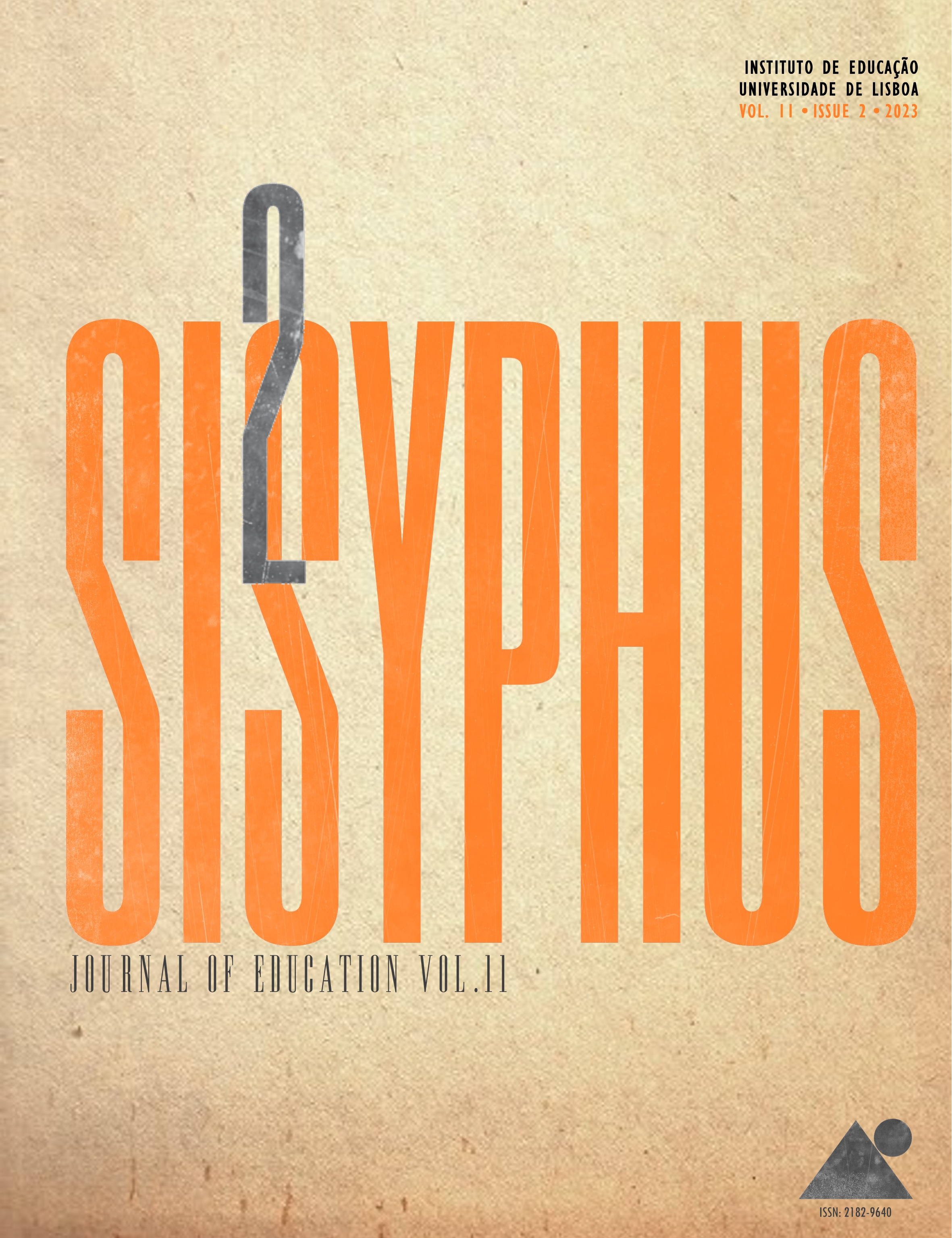The Austrian ECOLOG Schools Network
Results of a Quantitative Evaluation
DOI:
https://doi.org/10.25749/sis.28591Keywords:
environment, quantitative methods, environmental education, educational networksAbstract
This paper describes networking for education for sustainable development within the Austrian ECOLOG-schools network. It discusses theoretical concepts of Education for Sustainable Development and school development from an Austrian perspective, as well as networks in education in general and the organisation of the ECOLOG-network in particular. ECOLOG is a programme and network for the greening of schools and education for sustainability in Austria. For 25 years, over 700 ECOLOG schools and 13 colleges of teacher education have been integrating an ecological approach into their everyday school life and school development. Throughout the ECOLOG-schools network's existence, a series of evaluations, inquiries, and studies have been produced (Rauch & Pfaffenwimmer, 2020). Based on these evaluations and to obtain current quantitative data on the implementation of ECOLOG at the participating schools, a questionnaire survey was sent to all ECOLOG school coordinators with 154 respondents (25% response rate) in the school year 2018/19, with the aim of deriving relevant measures to support ECOLOG schools. The results show that the coordinators implemented the ECOLOG principles in their everyday school life through environmentally conscious actions, while pupils learned how to deal with limited resources and were exposed to new ways of thinking and working. However, there is still room for improvement, for instance in shaping cooperation with out-of-school partners.
Downloads
References
Affolter, C., & Varga, A. (2018) (Eds.). Environment and School Initiatives. Lessons from the ENSI Network - Past, Present and Future. Eszterhazy Karoly University.
Castells, M. (2000). The Rise of the Network Society (The Information Age: Economy, Society and Culture, Vol.1.). (2nd Ed.). Blackwell Publishers Ltd.
Czerwanski, A., Hameyer, U., & Rolff, H.-G. (2002). Schulentwicklung im Netzwerk—Ergebnisse einer empirischen Nutzenanalyse von zwei Schulnetzwerken. In H.-G. Rolff, K.-O. Bauer, K. Klemm & H. Pfeiffer (Eds.), Jahrbuch der Schulentwicklung (pp. 99-130). Juventa.
Dalin, P. (1999). Theorie und Praxis der Schulenwicklung. Luchterhand.
Fleiß, C. (2016). Bildung für nachhaltige Entwicklung im Kontext Schule und Inklusion. Universität Klagenfurt.
Fleiß, C. (2018). Wirksamkeit des ECOLOG-Netzwerks an Neuen Mittelschulen in Wien. (Masterarbeit). Universität Klagenfurt, Austria.
Fullan, M. (2007). The New Meaning of Educational Change. Routledge.
Henderson, K., & Tilbury, D. (2004). Whole-School Approaches to Sustainability: An International Review of Sustainable School Programs. Australian Research Institute in Education for Sustainability.
Holtappels, H. G., & Rolff, H.-G. (2004). Zum Stand der Schulentwicklungstheorie und -forschung. In U. Popp & S. Reh (Eds.), Schule forschend entwickeln. Schul- und Unterrichtsentwicklung zwischen Systemzwang und Reformansprüchen (pp. 51-74). Juventa.
Kant, I. (1787/1956). Kritik der reinen Vernunft. Hamburg: Felix Meiner Verlag.
Lehner, I. (2016). Auswirkungen des Wissenstransfers an einer Volksschule des Netzwerkes ECOLOG, bezogen auf eine Umweltbildung für Nachhaltige Entwicklung im Vergleich zu einer Volksschule, die nicht an diesem Programm teilnimmt. (Masterarbeit). FH Burgenland, Eisenstadt, Austria.
Minsch, J. (2004). Gedanken zu einer politischen Kultur der Nachhaltigkeit. Aufbruch in vielen Dimensionen. In F. Radits, M. Braunsteiner & K. Klement (Eds.), Bildung für eine Nachhaltige Entwicklung in der LehrerInnenbildung (pp. 10-18). Teacher Education College Baden.
Posch, P., & Altrichter, H. (1993). Schulautonomie in Österreich. StudienVerlag.
Rauch, F. (2015). Education for Sustainable Development and Chemistry Education. In V. Zuin & L. Mammino (Eds.), Worldwide Trends in Green Chemistry Education (pp. 16-26). Royal Society of Chemistry.
Rauch, F. (2016). Networking for Education for Sustainable Development: The Austrian ECOLOG-Schools Programme. Educational Action Research, 24(1), 34-45.
Rauch, F., & Dulle, M. (2011). Auf dem Weg zu einer nachhaltigen Schulkultur – 15. Jahre ÖKOLOG-Programm, 10 Jahre Netzwerk ÖKOLOG. BMUKK, Wien.
Rauch, F., Glettler, C., Steiner, R., & Dulle, M. (2023). Environmental and Sustainability Education in Austria. In R. Rieckmann & R. Thomas (Eds.), World Review: Environmental and Sustainability Education in the Context of the Sustainable De-velopment Goals. RiScience Publishers/CRC. (in Print).
Rauch, F., & Pfaffenwimmer, G. (2019). The Austrian ECOLOG-Schools Programme – History, Structure, Lessons Learned and Impact of a Network. Hungarian Educational Research Journal, 9(4), 589-606.
Rauch, F., & Pfaffenwimmer, G. (2020). The Austrian ECOLOG-Schools Programme – Networking for Environmental and Sustainability Education. In A. Gough, J. Chi Kin Lee & E. Po Keung Tsang (Eds.), Green Schools Globally: Stories of Impact for Sustainable Development (pp. 85-102). Springer. https://www.springer.com/gp/book/9783030468194
Reardon, B. A. (2010). Human Rights and Human Rights Learning as a Vehicle for the Renewal of the University. MS. Klagenfurt.
Rode, H. (2005). Motivation, Transfer und Gestaltungskompetenz. Ergebnisse der Abschlussevaluation des BLK-Programms "21" 1999-2004. Freier Universität Berlin.
SustainAll. (2022). SustainAll Project. https://sustainall.eu/
Swatek, E., & Rauch, F. (2020). Quantitative Erhebung zu Stellenwert und Wirkung von ECOLOG an Schulen aus Sicht der KoordinatorInnen an den Schulen. (Verdichtete Darstellung der Ergebnisse).: Universität Klagenfurt, Austria.
UNESCO (2014). Roadmap for implementing the global action programme on education for sustainable development. http://unesdoc.unesco.org/images/0023/002305/230514e.pdf
United Nations (2016). Sustainable Development Goals Report 2016. https://unstats.un.org/sdgs/report/2016/
Verhelst, D., Vanhoof, J., Boeve-de Pauw, J., & Van Petegem, P. (2020). Building a Conceptual framework for an ESD-effective school organisation. The Journal of Environmental Education, 1-16. https://doi.org/10.1080/00958964.2020.1797615
Ziener, K. (2017). Das ECOLOG-Netzwerk: Begleitforschungsstudie in der Phase 2015 bis 2016. Universität Klagenfurt.
Downloads
Published
Issue
Section
License
Copyright (c) 2023 Sisyphus — Journal of Education

This work is licensed under a Creative Commons Attribution-NonCommercial 4.0 International License.
Copyright (c) belongs to Sisyphus - Journal of Education. However, we encourage issued articles to be published elsewhere, provided that Sisyphus authorization is asked for and that authors integrate our original source citation and a link to our website.
Author Self-Archiving Policy
Author(s) are permitted to self-archive the final published version in institutional or thematic repositories, and in their personal or institutional websites.
DORA Signer
The Instituto de Educação da Universidade de Lisboa, Sisyphus' Publisher, is a San Francisco Declaration on Research Assessment signer.






